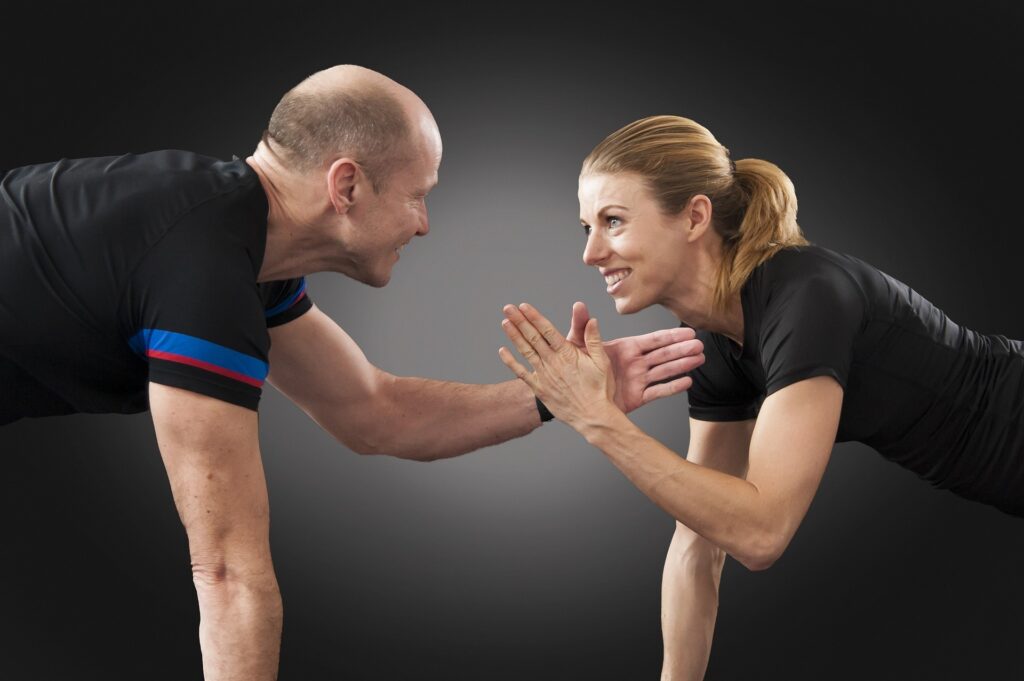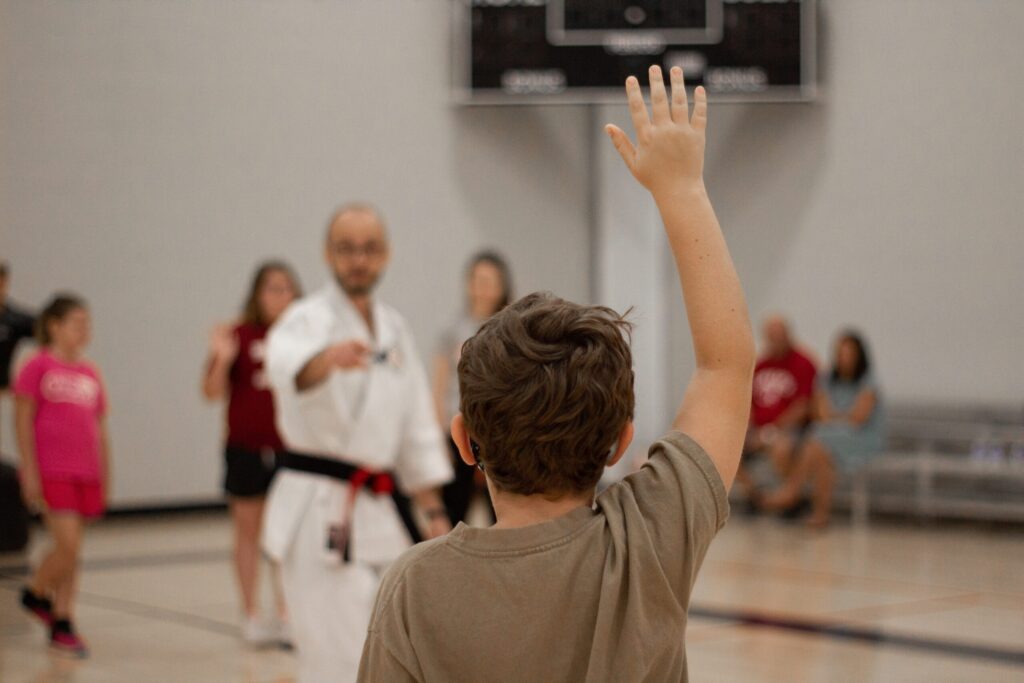Unsolicited Help isn’t Help—It’s Harm
When you’re working with a partner and you see them making an error it can seem like the right thing to give them a correction in order to help them improve. However, unsolicited help is often not help at all, it’s harm.
The Problems with Unsolicited Help
It’s disempowering
90% of learning happens in absence of a teacher. Thus to truly excel you must become adept and empowered in the learning process. You need to get good at asking for help, managing your own learning, setting priorities, and gaining self-awareness. If your training partners are always hopping in and doing this work for you, you’ll lose the opportunity to develop it for yourself.
It’s annoying or demoralizing
There are always 100 things to fix in one’s form. To get better you can really only focus on one or two at a time. While you’re working on knee alignment, having a partner correcting your hand position, hip alignment, and precision is at best an annoying distraction and at worst an onslaught of negative information. It takes focus to actually affect change, don’t become the screen that’s in its way.
It’s frequently off the mark
Five coaches are not five times better than one. Until you have developed experience and a sense of empowerment, dealing with instruction from multiple directions can be difficult to manage effectively. New students generally lack the tools to parse what is good information from what is bad or the ability to self-prioritize and focus. How do you know that what you’re offering them is really where they’re ready to work or able to work? Let’s reduce the noise for our training partners by letting them receive feedback from their teacher. The best thing we can do is endeavour to be their best exercise partner.
It’s often a waste of breath
When someone asks you for help, you know that they’re ready to receive it. When we give unsolicited help, there’s a good chance that we’re hitting the receiver at a moment when they’re not ready or willing to process it. They may be nodding and agreeing while desperately trying to hold on to their focus, putting on an air of politeness for you, or restraining their desire to slap you. All this means that you are wasting your breath and everyone’s time.
How Can I Help?
This is not an article about not giving help, it’s simply about being effective and constructive with the help you offer. If you truly want to help those around you grow, which I’m sure you do, find ways to do it that genuinely create the outcome you want. Here are a few strategies:
Be an excellent training partner
One of the simplest things you can do to help your partner learn is to do your side of the exercises as best you can. Be a consistent and generous training partner. Don’t compete or direct. Allow them the opportunity to discover and learn from the feedback you can offer within the structure of the drill itself. If you’re unsure how to be a great partner, ask your teacher, mentor, or partner for help in doing so.
Model the behaviour you want in your peers
If you think your partner could be getting more help, then make sure you’re modelling good help-seeking behaviour. Remove hierarchy from your training. Make learning and ideas the focus. Your partner may learn and grow more by being your helper than they ever would through the help you offer them.
Wait to be solicited
When I’m in the role of teacher there is an implicit request for help that comes from my students when they join my class. This is not the case when you are a peer in that class. Even when I am in the teacher role I endeavour to get my students into a habit of looking after their own needs. The greater a role they can play in directing me as a tool for their benefit, the more effective my help is when I give it.
If you feel that you have something to offer your training partner, sit tight and wait. If you feel that perhaps they want your help but are not yet empowered to ask for it, invite them first: “I have a pointer for you, would you like it?”
Be aware though that even when you start this way, many people will agree simply out of politeness or because they feel it’s what they’re “supposed to do”. So turn your emotional perception up to max and make sure you’re truly offering something that is desired.
Talk about learning and empowerment
There is a bigger conversation about empowerment and learning to be had with your training partners. How do your peers and your group’s teachers and facilitators want to give and receive help? The meta conversation about learning is often as important as the technical learning itself. Make sure that everyone in your group knows that they are the centre of their own learning process and should be the active director of it and not a passive recipient.
Going Deeper: Why Are You Giving Unsolicited Help?
I have found that some students who are offering help are not actually coming from a place of helpfulness but from a place of insecurity. I am familiar with this place because, for the longest time, I was a star at giving unsolicited feedback while I struggled with my own sense of worth and my own demons of perfection. It’s worth taking an honest and gentle look at your own motivations. Are you offering help from a sincere desire to positively influence change or is it coming from a desire to distract from your own fears of imperfection, to bolster your own sense of worth, or to reinforce your place in the hierarchy?
We’ll explore this subject more deeply in a future post. For now, be as compassionate with yourself as you are with those around you. Learning is a vulnerable process and necessarily uncomfortable. Spend time getting comfortable with your discomfort, and allow your training partners the opportunity to do the same.
Tell us your thoughts and experiences of help-giving in the comments.
Devon





I give one piece of unsolicited advice to every rapier newbie I come across, exactly once:
“The most valuable skill you can develop is the ability to tell what *will* or will *not* be useful advice to you, and to ignore any advice that will *not* be useful.”
I don’t say it any more than that once. If it comes up in a longer conversation, I’ll reprise it, but harping on the subject will just seem like I’m sniping at other experienced fencers.
Thereafter, after every time I free-fence someone, no matter how skilled or new, I will try to say one off-hand positive thing about what they were doing, in order to practice my own personal positivity and to reinforce good things they were doing. Then, assuming they don’t have “don’t talk to me” body language, I ask them one of the following questions:
“Were you trying something new?”
“Would you like words?”
“Would you like to talk about our passes?”
If they seem hesitant, I will follow up with:
“‘No’ or ‘I do not want to talk’ is a perfectly valid answer.”
If they say yes and seem like they want to continue engagement, I will try to give them one specific piece of advice. Generally it has to do with either something I was taking advantage of, or how to counter something specific I was doing. I try to remain style-agnostic, because not everything I do will be applicable to all bodies.
I try to make this explanation quick, taking at most a minute or two, just in case I mis-read the person. I do my best never to say that people are wrong or that there is a specific “right” way to do things, but instead approach by mentioning specific trade-offs that one makes. The one exception is flaws in technique which will result in injury, which I try to correct posthaste.
I try to work with people because, as my opponents grow more skilled, I am forced to improve myself. It’s really a selfish goal, in the end.
Afterwards, as long as they still seem willing to engage and it seems appropriate, I will ask, in exactly this fashion:
“Do you have anything for me? And, just to be clear, ‘no, I was focusing on my own game’ is a completely acceptable answer here.”
This creates the opportunity for them to tell me a thing that I might not have noticed, while still giving them an easy out. As well, it creates the opportunity for them to think critically about the relationship between their fencing game and my fencing game. And lastly, it encourages the feeling that we are all each other’s peers in this Art, learning from and encouraging each other.
I have put a lot of thought into this because, early in my rapier career, I got a whole lot of long lectures on subjects that I either wasn’t interested in at that time, or seemed incorrect for me. If something seems incorrect, that means it either is incorrect, or is something I’m not ready for yet. So there’s no reason to try to push or “prove” things to people. At best it will turn people off from what you’re trying to “prove”, at worst it will teach them not to talk to you at all.
That said, there are some good friends of mine with whom I will have bitter arguments about proper technique. This is done with the understanding that we all disagree, and that’s okay.
HI Justin, thanks for the comment. I follow a similar approach in free-fencing, in a mutual practice environment. Often I will tell my partner if I’m working on anything and ask them if they are working on anything. I’ll then ask if there’s any particular way that I can help them. It lets them know I am available but also leaves room for them to say “no”.
The ideal training environment would have each individual passionately leading their own education, asking for help, tapping into available resources, etc. However it takes time to build that culture.
As an aside, I think it is rarely a bad thing to share with someone how they’re doing something well. Particularly nice to share with someone who is new.
Thanks, Devon. As usual, I find your comments right on the mark.